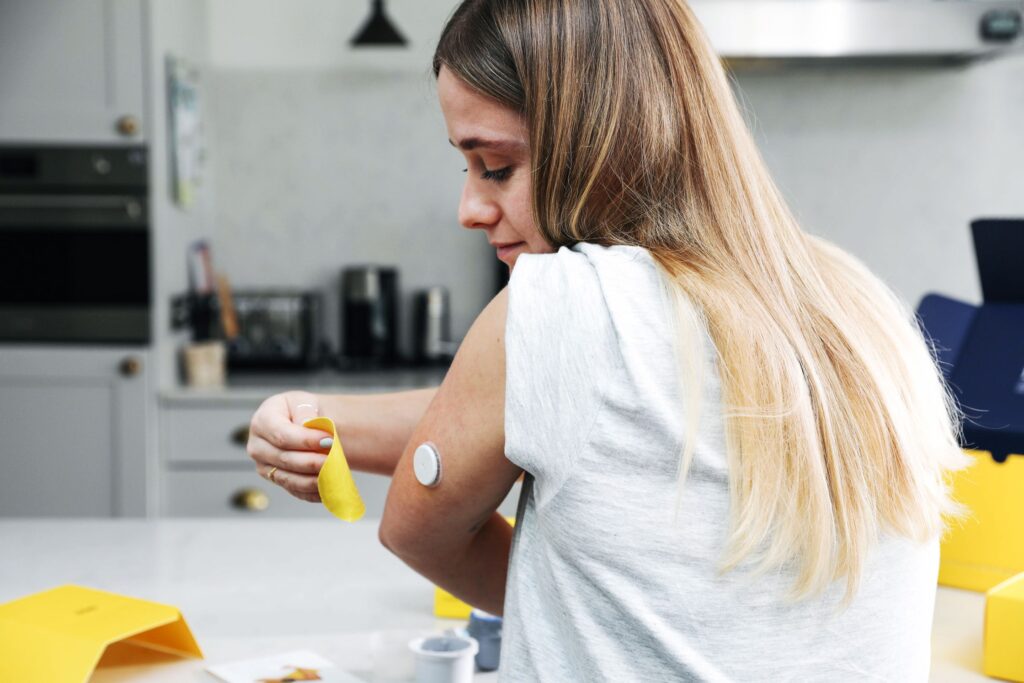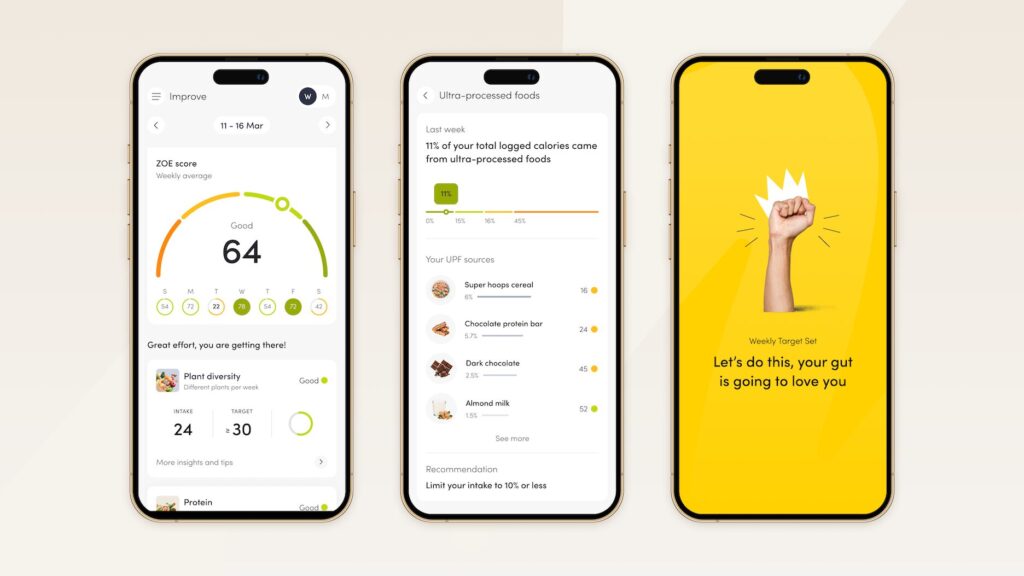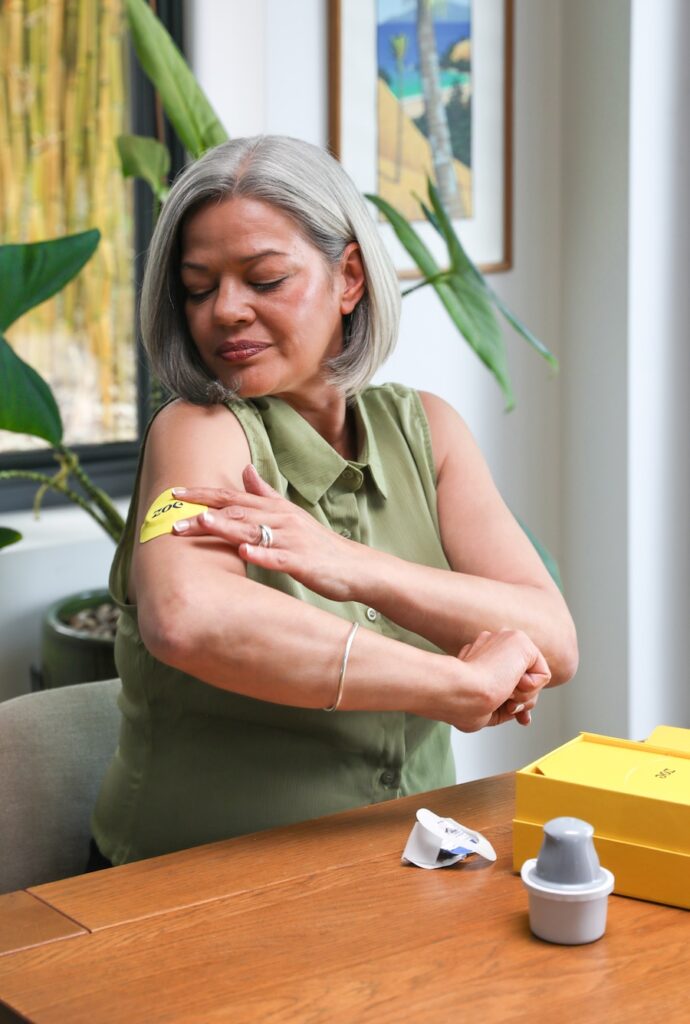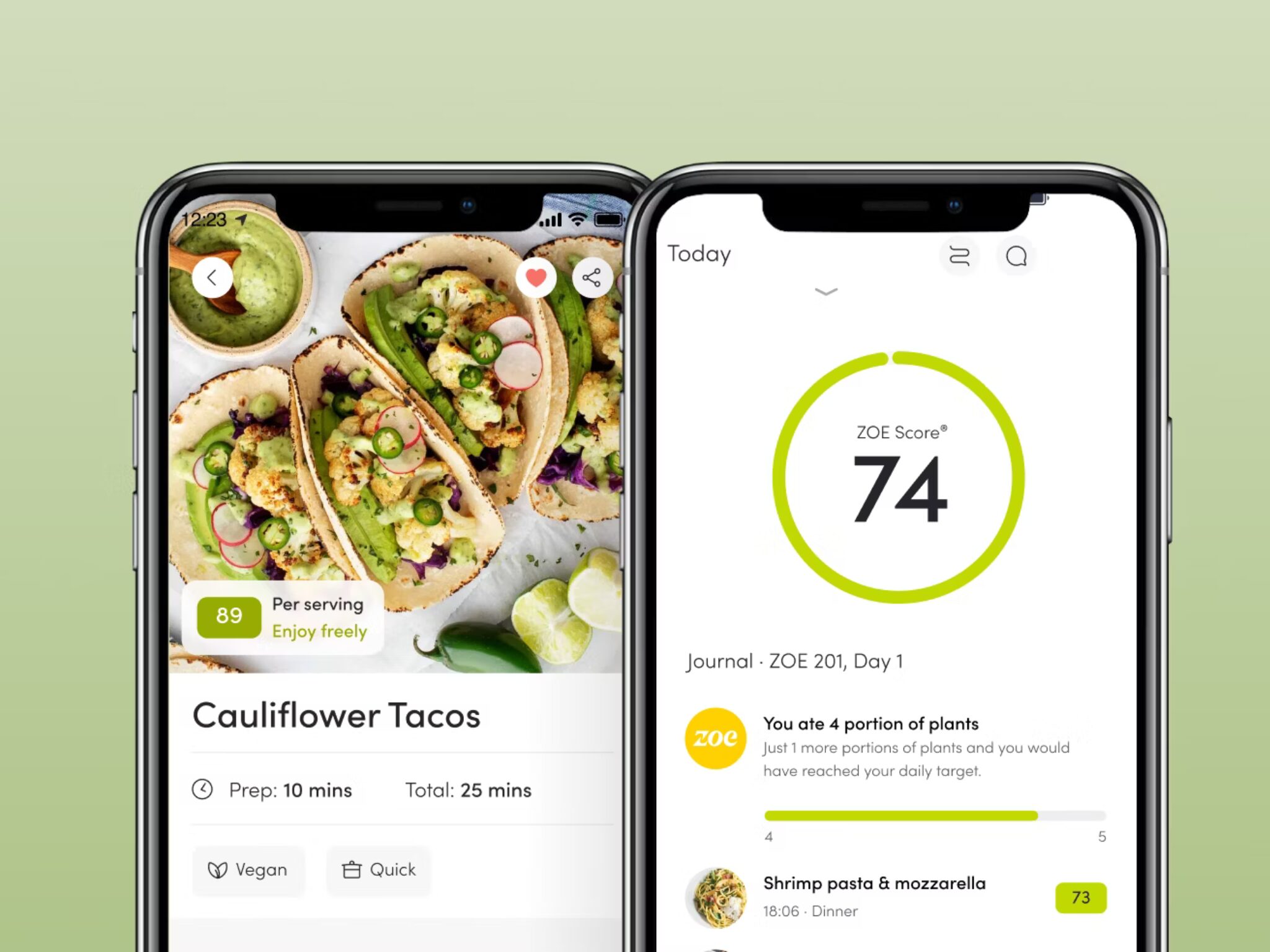6 Mins Read
Personalised nutrition app Zoe has secured $15M in Series B+ funding to expand its operations in the US, where gut microbiome health has blasted into focus with GLP-1 agonist drugs.
A pioneer of personalised nutrition, Zoe’s Series B extension was led by Coefficient Capital, taking total investment in the gut health platform to $118M.
The startup will use the capital to expand its presence in the US, where it’s available in all states bar New York (thanks to certain regulatory challenges). The stateside focus comes at a time when Ozempic and other GLP-1 agonist drugs have taken over the nation – one in eight Americans (around 30 million) have tried these weight loss medications.
Founded by CEO Jonathan Wolf, author and academic Tim Spector, and businessman George Hadjigeorgiou in 2017, Zoe offers users detailed personal nutrition advice by scoring every food on a scale of 0-100, based on a series of at-home blood fat, blood sugar and gut microbiome tests.
“We are going to start investing in marketing because there are millions of people we know we can help in the States,” Wolf told TechCrunch. “For the first time, the product is ready and mature enough for us to do that.”
Zoe looks to reduce costs after layoffs

Since the app’s launch in 2022, Zoe’s subscriber base has surpassed 130,000, but truly reflective of its demand is the number of people on its waiting list (which was, at one point, over 250,000).
Its users wear continuous glucose monitors (CGMs), allowing them to see fluctuations in blood sugar levels in real time. The idea is that you can see which foods produce the biggest spikes in your glucose, and tailor your diet accordingly.
The personalised nutrition space has been booming recently, as consumer awareness around gut health and overall wellness has risen since the Covid-19 pandemic, and weight loss drugs like Ozempic, Wegovy and Mounjaro have become central to food and nutrition conversations. Apps like Seed Health, Flore and Viome have all been focusing their technologies on the microbiome, while US-based Levels uses CGMs in a similar manner to Zoe.
But Zoe is a frontrunner in its field in Europe, attracting consumers despite the high associated costs. In the US, a 12-month subscription costs $29 per month, or $348 per year – and that’s without the $294 you have to pay for the test kit.
However, while the company’s revenues climbed by 390% to £28.7M ($36.7M), its pre-tax losses also doubled to £21M ($26.8M). This led Zoe – named the UK’s fastest-growing health tech startup by headcount in 2023 – to lay off 20% of its workforce, a decision Wolf described to the Telegraph as “the most difficult news I’ve had to share since we started Zoe”.
“What I believe is that like all new technologies, if you think about your iPhone or your electric car, these prices will come down as [their use] goes up,” he said of the app’s subscription costs.
Zoe scores major win with new study

Some have questioned the true impact of personalised nutrition apps like Zoe. In the UK, the Food Standards Agency last year found that “glucose monitoring and gut microbiome analysis may prove to become more robust and actionable”, it suggested that the benefits of personalised nutrition “seem somewhat marginal when compared to what is already understood about a healthy diet”.
Scientists have also raised concerns about the usefulness of CGMs for non-diabetic users – even Zoe acknowledges that its app does not “diagnose, prevent or treat any diseases”.
But much like Wegovy was cleared as a weight loss drug in the US (and now as a heart medication for overweight people in the UK), Zoe recently received a scientific boost proving its abilities. In May, it published the results of a randomised controlled trial (RCT) in the Nature Medicine journal, which explored the effects of personalised nutrition on cardiometabolic health.
Wolf, which recently launched a whole-food supplement Daily30+, told TechCrunch that the trial is the “gold standard in medicine” where you compare the intervention (Zoe’s membership) against the control (the basic standard of care and dietary guidelines in the US).
The research showed that Zoe does, indeed, work, and that it “comprehensively outperformed the control”. Using Zoe could improve biological markers after three to four months, and enhance mood, sleep and energy, the study found.
“As a CEO, it’s terrifying to go into this RCT because you are committed,” said Wolf. “If it proves that Zoe doesn’t work, you’ve got to publish it.”
But despite the growing interest in weight loss, Wolf made it clear that Zoe isn’t targeting that market. “Nutrition has been horrendously understudied because there’s been no money in it from pharmaceutical companies,” he said.
“Therefore, advice is often ‘eat more vegetables.’ And most of the advice that we have been taught has turned out to just be wrong. For example, if you need to lose weight, you should go on a calorie-controlled diet. All the latest nutritional science says that calorie-controlled diets do not work for 80% of people.”
As Big Food takes on GLP-1, Zoe CEO criticises its public health role

The latest study is among 60 peer-reviewed scientific papers published by Zoe in the last seven years, and is meant to quash concerns about microbiome mapping.
It comes at a time when Big Food has been feeling the effects of the GLP-1 trend. Ozempic, Wegovy and the like have bulked up consumer demand for protein, and slimmed their intake of sugar and fat. In the US, over 60% of Ozempic users are spending less on restaurants.
Companies big and small are responding to the GLP-1 craze through a variety of innovations, whether it’s technology that reduces sugar in juices or converts sugars into dietary fibre for the gut.
Nestlé, the world’s largest food company, introduced a new brand called Vital Pursuit, made up of $5 pizzas, pastas and whole-grain bowls specifically for Ozempic users. Meanwhile, its Health Science unit launched a dedicated website to provide nutritional support for people on weight loss programmes, including GLP-1 medication users.
Conagra Brands – the CPG giant behind brands like Birds Eye, Gardein, Chef Boyardee and Mrs. Butterworth’s – is now selling more products catering to people on weight-loss drugs, with sales of frozen meals increasing by 8% among GLP-1 users.
Speaking of which, meal kit startup Daily Harvest began offering a GLP-1 companion collection, with dishes like broccoli and white bean soup, and a dragonfruit and lychee smoothie.
Meanwhile, Kroger’s health division rejigged its weight management programme to offer patients access to drugs like Wegovy and Zepbound, just as supplement retailer GNC has introduced a nutritional support section for GLP-1 users, selling protein powders and fibre products.
Wolf has been critical of Big Food companies and their role in poor public health. “I believe that large food manufacturers have a strong economic interest to slow down changes in government guidance as much as possible because they don’t want to recognise that food, which is very profitable for them to make, is causing us serious harm,” he told the Telegraph.
With Zoe – which has a product development partnership with UK retailer M&S – he would hope to create lasting change in the post-GLP-1 food system.



